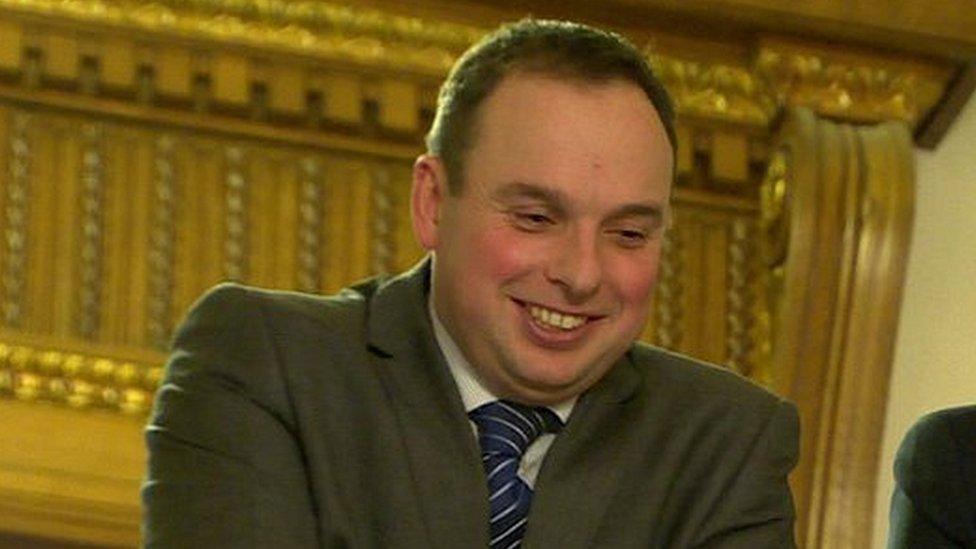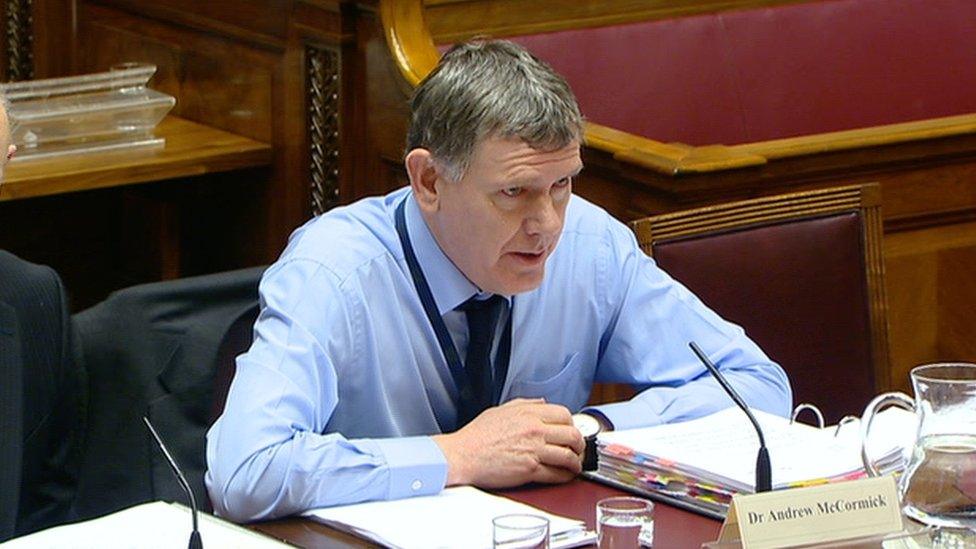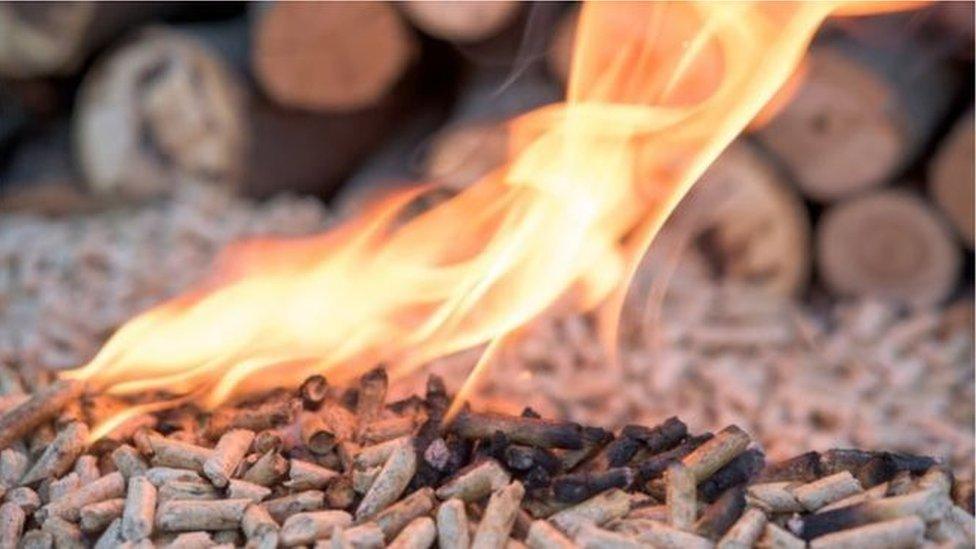RHI scandal: Foster adviser Andrew Crawford 'will be cleared'
- Published

Dr Andrew Crawford was an adviser to the then enterprise minister Arlene Foster when the RHI scheme was created
DUP leader Arlene Foster has said she believes her former adviser will be cleared by the judicial inquiry into the Renewable Heat Incentive scheme.
Last week, Dr Andrew Crawford was named as the special adviser who had used his influence to delay the reduction of the scheme's excessively high tariffs.
His name was given to the Public Accounts Committee by senior civil servant Dr Andrew McCormick.
But Mrs Foster said Dr McCormick had no evidence to back up his statement.
Dr Crawford, a former special adviser to Mrs Foster, has denied the claim, saying he "acted with complete integrity". However, he resigned the day after being named by Dr McCormick.
Mrs Foster set up the scheme in 2012 when enterprise minister and Dr Crawford was her then adviser.
The aim of RHI was to increase the creation of heat from renewable sources but businesses received more in subsidies than they paid for fuel, and the scheme became heavily oversubscribed.
Civil servants wanted to cut the rate paid to businesses involved in the scheme in July 2015. It was eventually reduced that November, but not before a massive surge in the number of applications.
The fallout from the scandal, which is approximately £490m over budget, resulted in the collapse of Stormont's institutions and the calling of snap elections on 2 March.
'Inquiry hugely important'
"Andrew [Crawford] felt - and if anybody knows Andrew they know that he is a very private person - he was becoming the focus of the story," Mrs Foster told BBC News NI's Mark Devenport.
"He felt that that was wrong for his own minister, he felt it was wrong for the institutions and so he resigned.
"I think Andrew will be absolutely cleared when the inquiry comes about."
The former first minister said Dr Crawford had been named on the basis of hearsay.
"I could not find any evidence, either in written evidence or evidence from anybody else, that Andrew [Crawford] had done what Andrew's [McCormick] belief said he had done," she added.

Dr Andrew McCormick named Dr Crawford while giving evidence to Stormont's Public Accounts Committee (PAC)
"I think it is wrong that we pursue people on beliefs, what we do is get to the facts, we get to the evidence and that 's why the public inquiry is hugely important for the people of Northern Ireland."
A public inquiry into the scheme is to be chaired by retired appeal court judge Sir Patrick Coghlin.
He is to begin gathering papers on 1 February and the inquiry is expected to report its findings within six months.
- Published18 January 2017
